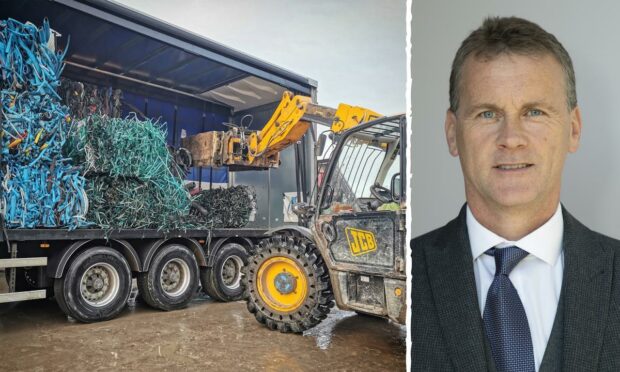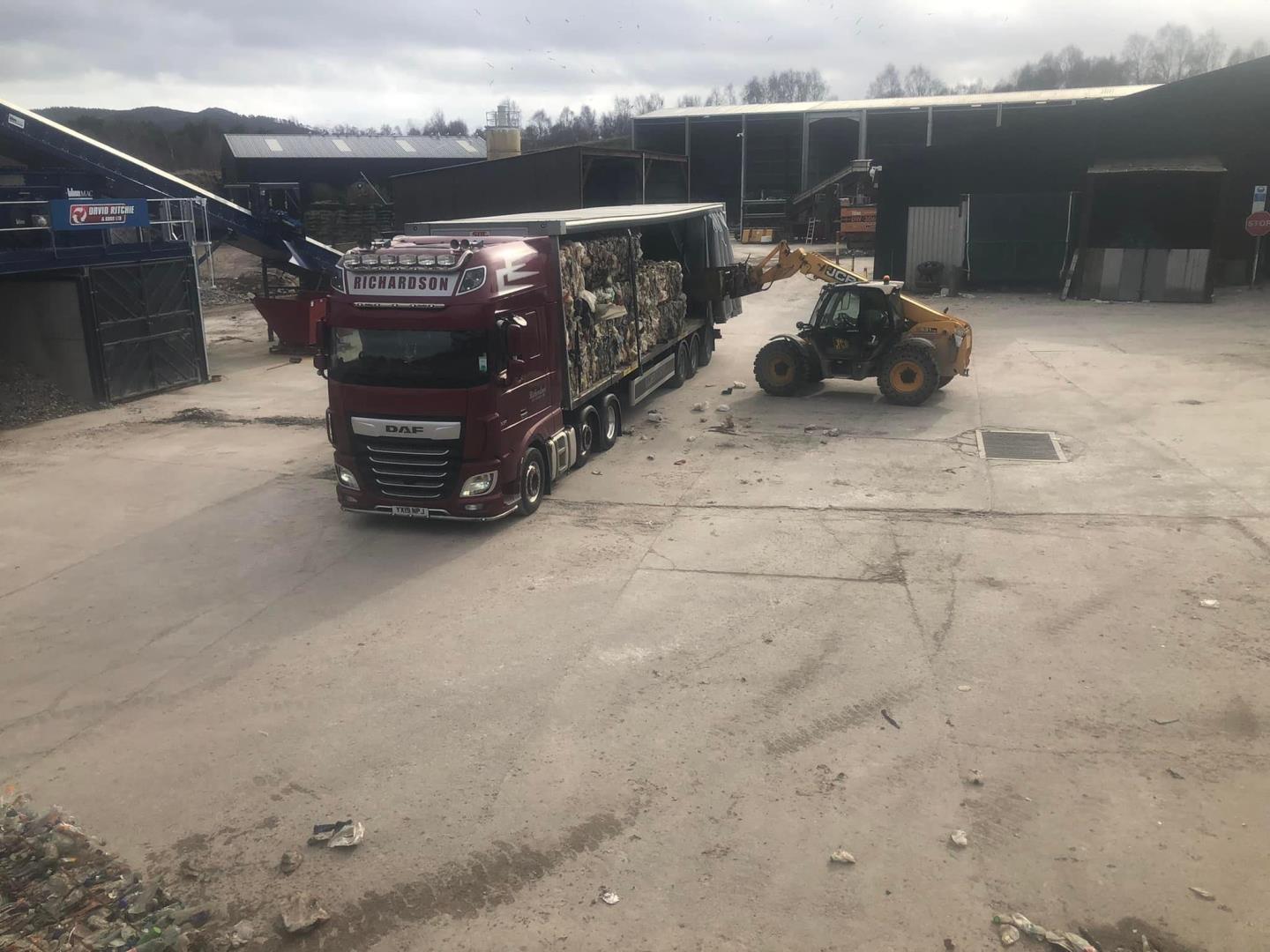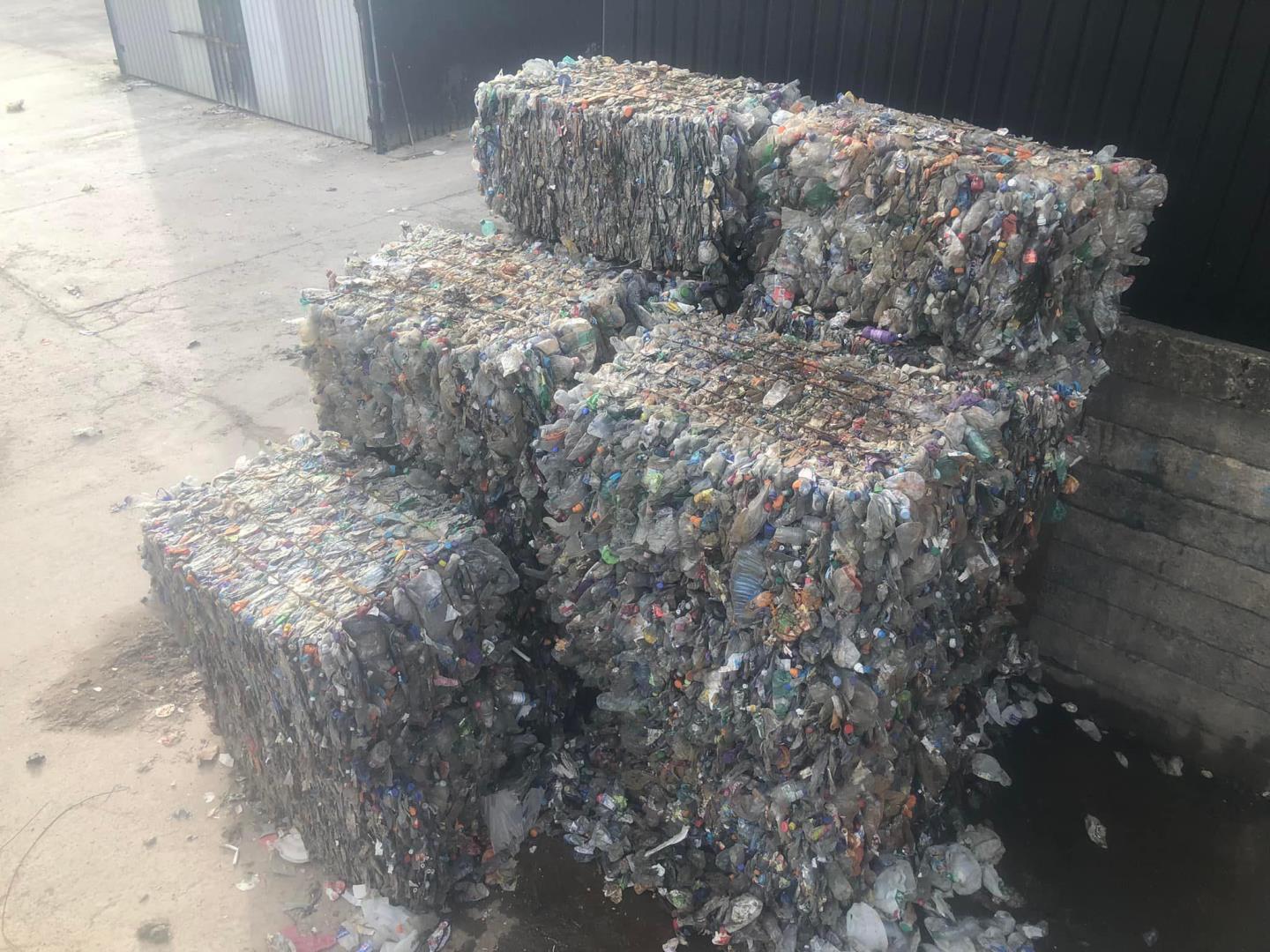A north recycling firm owner has spoken of his fears as the red diesel ban looks set to double the cost of his business operating.
David Ritchie and Sons in Aviemore runs a successful recycling and quarry operation in the Cairngorms.
Overnight from March 31 into April 1, the firm’s fuel costs will rise by £120,000.
Owner Brian Ritchie has said the added cost is a cause for real concern, with livelihoods potentially at risk.
‘This is going to put the recycling industry back 20-30 years’
The firm, which currently employs around 32 people, began in 1958.
It boasts more than 30 years of experience in waste recycling methods.
However, with additional fuel bills, coupled with rising electricity costs, the cost of remaining operational is about to sky rocket.
Mr Ritchie has called on the UK Government to halt its immediate ban and to instead introduce a phased transition towards reducing fossil fuel reliance.
Mr Ritchie said: “With the best will in the world, we can’t keep sustaining this. We can’t keep passing the costs onto our customers – it’s not fair.
“This is going to put the recycling industry back 20 to 30 years.
“It’s devastating. We have built up a client base over many years by providing a good and affordable service.
“This is backing us into a corner.”
The industry has been calling for talks with the government for months.
Some have warned that the red diesel ban is “counter-intuitive” to the government’s own waste strategy.
Mr Rtchie added: “The cost of running our waste recycling operation is getting to a stage where we really have to consider where it is heading.
“The whole waste industry is on a very, very dangerous cliff edge at the moment.”
Will firms go out of business?
Resource Management Association Scotland (RMAS) has echoed Mr Ritchie’s concerns.
RMAS said costs are rising around 15% across the waste recycling sector in Scotland with fuel expenses increasing between £100,000 and £400,000 a year for operators.
The organisation says the knock-on effect is that customers are going to have to pay more, or operations may cease and jobs may be lost.
Nicki Souter of RMAS said the removal is being touted as a green policy. However, it is potentially going to cause a “significant threat to the environment”.
She said: “Our industry is fully supportive of reducing our reliance on fossil fuels and diesel consumption.
“But at the moment, alternative fuel sources just do not meet the power, torque and operating time requirements associated with a lot of our plant equipment.
Agriculture, horticulture, fish farming and forestry operations are being permitted to continue using red diesel.
Ms Souter added: “We are at a loss as to why we can’t do that.
“The very least we are asking is for the ban to be phased in over five years while viable alternative sources are developed.
“The solutions just aren’t there at the moment.”
The construction industry is also feeling the effects
The construction is also affected by the red diesel changes.
Callum Mackintosh of the Scottish Plant Owners Association has said costs are 30% to 40% greater than the original estimated sums operators were preparing for two years ago.
Mr Mackintosh said: “The soaring cost in fuel over the past fortnight has really been a kick in the gut to everybody in the industry. It has thrown everybody into turmoil.
“My call is to delay the changes that are due to come in on April 1 for 12 months.
“Both until the market levels out a bit so the industry has a bit more confidence, but also for the government to have a grasp on the fuel crisis.”
What are the alternatives?
Alternative fuel sources to diesel are available. However, there is limited supply.
Hydro treated vegetable oil (HVO) and gas to liquid (GTL) are two possible avenues.
However, according to SPOA, the whole supply of HVO in Europe combined is only enough to supply approximately 30% of demand in the UK.
Mr Mackintosh has said it is important to acknowledge other sources. However, he has said the onus is on those who will seek to use them to drive up demand.
The UK Government has said limiting red diesel access is part of ambitions to meet a net-zero target by 2050.

A spokesman said: “Red diesel accounts for nearly 14 million tonnes of carbon dioxide emissions every year.
“So it is right that it is taxed more fairly as the UK moves to net-zero by 2050.
“To support firms transitioning away from red diesel, there is £40 million of support available via our red diesel replacement competition.”



